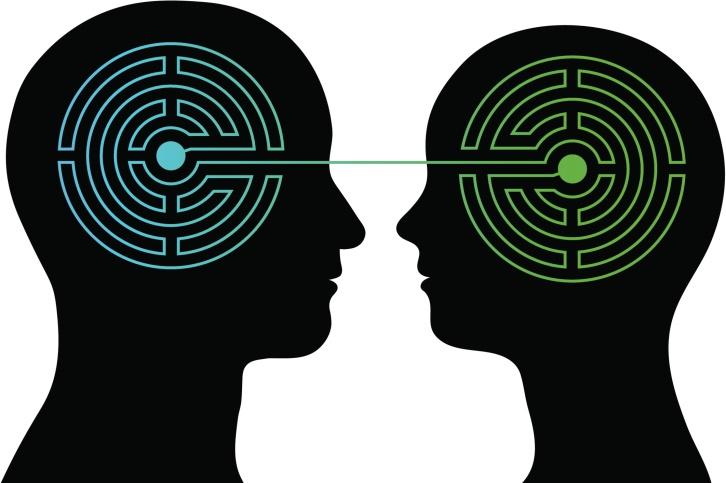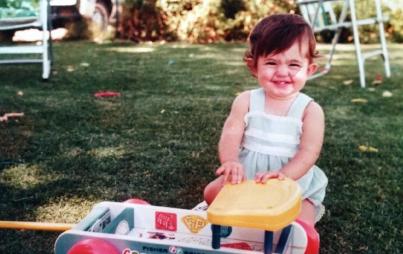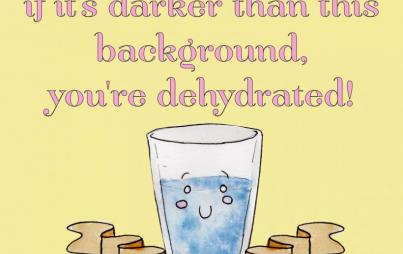
Credit: Thinkstock
Are you the kind of person who likes staying in every Saturday night, who is generally shy and so perfectly organized the employees at The Container Store know you by name? Do you follow the rules but are always—like that damn moth to a flame—attracted to the bad boy or bad girl type? Could a relationship ever work between you and your opposite?
The answer? Yes. And also no.
You Complete Me
Opposites can attract. People are generally attracted to partners who compliment certain aspects of their personalities. Essentially, you need to complete each other. We are often attracted to people whose traits we wished we possessed, but don’t. For example, I’m just about as good at cooking as my fiancée is at cleaning. Honestly, I wish I were good at cleaning, but I’m just not. (Unless you count hiring someone to clean for me, then I’m great at that.) But, if we want dinner, we each contribute in our own ways to the meal.
My fiancée uses an adorable analogy to illustrate how we compliment each other (I can’t think of everything. See what I mean?)- “We are pieces of a puzzle. I’m the corner piece and you’re the little squiggly piece and together we fit perfectly.”
This is important because a 2013 study from—Columbia University concluded, “those who seem to agree with each other all the time may find they are actually too close for comfort.”
Firstly? Which isn't too romantic, but whatdya want—is good old fashioned genetics.
Whether it’s binge watching Orange Is The New Black, trying a new sport or chowing down on Ethiopian food, science has shown that we are attracted to those who have what we don’t. People who are mirror images of each other ultimately repel (think two squiggly pieces of a puzzle trying to fit together), but that doesn’t mean that people who are complete opposites will be satisfied in their relationships either. The happiest couples are somewhere in between.
Science Says:
While it's not the most romantic thing you've ever heard, genetics play a significant and largely unconscious role in our mate selection. Professor Maria da Graça Bicalho, lead author of Opposites Attract: How Genetics Influences Humans To Choose Their Mates discovered that major histocompatibility complexes (MHC)—a group of genes that help the immune system recognize foreign bodies—is driving our partner-choice to an uncanny degree.
Scientists hailing from the European Society of Human Genetics studied the MHC data from 90 married couples, and compared them side by side with 152 randomly-generated control couples. Then they counted up the number of MHC dissimilarities between the real couples vs. those in the partners.
"If MHC genes did not influence mate selection, we would have expected to see similar results from both sets of couples. But we found that the real partners had significantly more MHC dissimilarities than we could have expected to find simply by chance." — Professor Bicalho told ScienceDaily
A new study adds even more fodder to the dialogue, concluding that opposites attract in some ways, but not in others. In other words, opposites can only stay attracted to each other under certain conditions. That’s probably not what you want to hear either, but here we go.
What did the study say couples should have in have in common? Age, political beliefs, religion and some aspects of intelligence. A different study showed showed that people tend to partner up with those who have similar education levels. I don’t understand why they needed a study to prove that—can you imagine trying to have conversations day in and day out with someone who you think is isn’t smart or talks about things way above your head?
Another study by researchers Nathan Hudson and Chris Fraley concluded that satisfied couples need to share two important characteristics—emotional stability and agreeableness. In other words, your hot mess drama queen friend whose been with that guy forever, you know, the one who can’t keep a job and hasn’t spoken to his brother in three years—those people will stay together. As for agreeableness, it doesn’t mean what you think. Two people who always see the positive in everything will be just as happy as will your funny, sarcastic friends who seem to piss on everything. It just matters that both members of the couple share that trait.
Another really interesting finding is that people who thought they were similar to their partners were happier in their relationships, regardless of whether they actually were—it’s only the perception of similarity that actually matters.
But, Really It’s All About Intimacy
The happiest couples desire similar intimacy levels. Relationship expert April Masini says, “The biggest problem I see in relationship queries that are sent to me for expert advice, are from people who’ve gotten invested in relationships without knowing what they want in a relationship —or even if they want one at all.”
In other words, it’s the big picture that matters most. You have to want the same things when it comes to major life choices. Whether you dislike football Sunday just as much as your partner looks forward to it, isn’t as important as how many times a week you two want to have sex or how much emotional support you both need. Or if you want a child or if you don’t.
Just Answer The Question Already!
Yes, opposites attract when it comes to your likes, dislikes, strengths, and weaknesses—the individual aspects of your own personalities. But, when it comes to a long-term relationship, a runner and a couch potato can find true happiness together . . . as long as they can picture that couch in the same living room.






